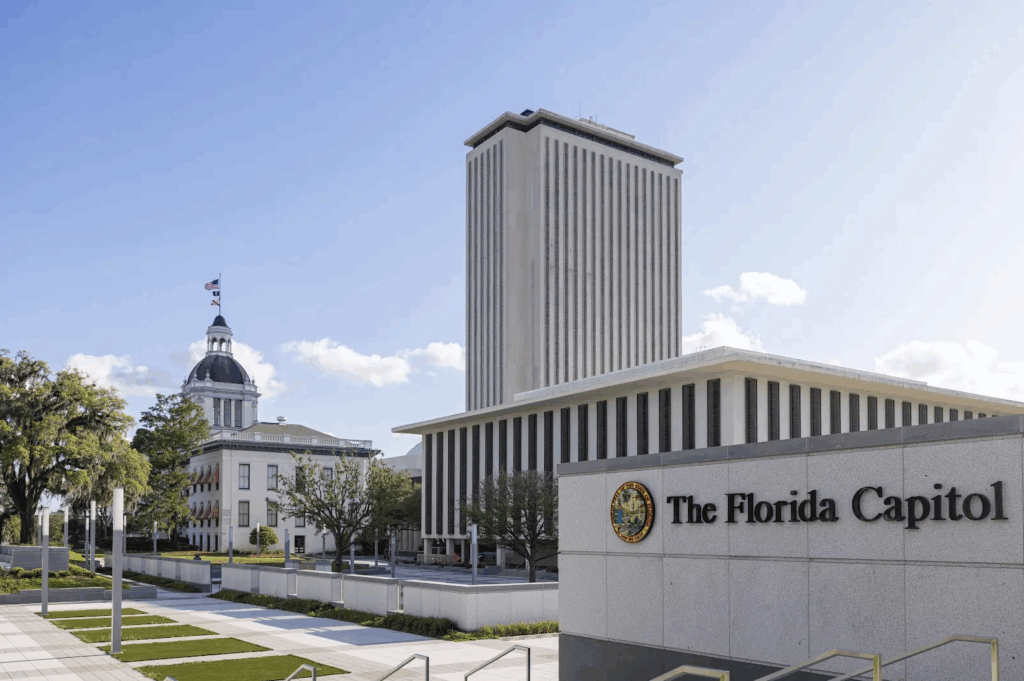Florida destination marketing organizations (DMOs) are coming out swinging after the state’s House of Representatives passed two bills that threaten to devastate tourism efforts.
Last Friday, legislators passed House Bill 7033 and House Bill 1221, sending shockwaves throughout the Sunshine State. Convention and visitor bureau (CVB) and sports commission officers immediately took to social media to warn that Florida’s tourism industry is at risk.
What to know about the bills:
- 75% of Tourist Development Tax (TDT) revenue would be reallocated to property tax credit—eliminating funding for tourism promotion, marketing and tourism facilities.
- They would dissolve every Tourist Development Council in Florida by the end of the year.
- The bills would mandate a public referendum on TDT every eight years, as a method of continuing the Property Tax discount.
“This is ill fated. This is misguided. This is short-sighted,” says Santiago Corrada, president and CEO of Visit Tampa Bay for the past 12 years.
During Corrada’s tenure, the destination has increased hotel taxable revenue from $423 million to more than $1 billion in the past three years. Equally impressive, Tampa had the highest occupancy rates in the United States from January to March 2025, according to Corrada.
The growth is not due to an explosion in new properties—only 2,000 new room nights have been added since 2013—but rather, it’s due to marketing and sales efforts to land events such as the Republican National Convention, Super Bowl, WrestleMania, event industry gatherings and a slew of conferences and conventions across myriad sectors.
According to Visit Tampa Bay, the tourism industry is responsible for the following in Hillsborough County:
- $9.4 billion in total economic impact
- 61,326 jobs
- $683 million in state and local taxes generated
Redirected tourism tax dollars would provide Hillsborough County residents $92 in property tax relief—but will leave a $1,200 shortfall to replace the lost visitor tax revenue.
“This is way too big a risk,” Corrada tells Vendelux. “There will be a huge negative economic impact to the state of Florida.”
In a Dogfight
Tampa’s success is just one of a host of examples that speak to the importance of DMOs.
In a column published in The Tampa Bay Times, Destinations International CEO Don Welsh wrote: “Florida’s economy is the envy of the nation and many countries around the world, and tourism is the engine that makes it run. For decades, the state has thrived on a smart, sustainable model: out-of-state visitors contribute billions through the Tourist Development Tax, fueling local economies, creating jobs and funding public services without burdening residents.”
With warm weather and a vital hospital industry, destinations from as far north as Jacksonville down to the tip in the Florida Keys regularly attract a variety of leisure and business travelers.
For example, visitors spent $3.5 billion in 2023—supporting nearly 19,000 jobs directly, plus another 5,500 indirectly, Visit Florida Keys reports. Tourism-generated taxes reached $397 million—saving each household about $11,500 annually, including $1,124 in property taxes.
In total, tourism contributed $127.7 billion in new Gross State Product for Florida in 2023, according to a report from Visit Florida.
Nevertheless, the state’s legislature appears skeptical about the importance of destination marketing. When rapper Pitbull received $1 million from Visit Florida for promotional efforts, it caused an outcry that led to the resignation of the organization’s then-president and CEO, Will Seccombe. In 2022, state lawmakers also threatened to remove funding from Visit Florida.
“They think it’s just throwing up a billboard on Times Square,” Corrada laments. “It’s way more complicated than that. They’re not out there responding to RFPs trying to bring in big-time events.”
What Happens Next
The timeline for the current crisis is swift. State senators are now debating the bills. The legislative session is scheduled to end on Friday, May 2, but many expect the tourism debate to continue into June.
Prior to becoming president and CEO of Visit Florida Keys, Kara Franker held the same position in Estes Park, Colo., so she is keenly aware of the dangers ahead.
In 1993, the state of Colorado voted to eliminate tourism marketing and in two short years, lost more than $1.4 billion annually in visitor revenue. The results were devastating, with domestic market share dropping 30% and annual losses exceeding $2 billion, according to Franker’s office.
She says it’s vital history not repeat itself.
“The time to act is now,” says Franker. “We can’t afford to sit back and see what happens—there’s too much at stake. With over 2 million jobs and $124 billion in annual visitor spending on the line in Florida, this is an existential threat—not just to the tourism industry, but to communities like ours that depend on it.”
Corrada admits he can’t predict what happens next.
“I don’t know that I’m confident about anything, only because the truth is hard to find,” he says. “No one really wants to be honest about why this is happening. It’s a stunt.”






